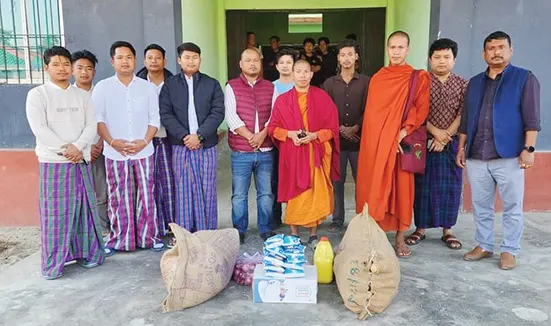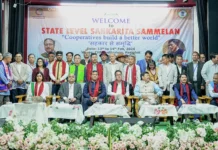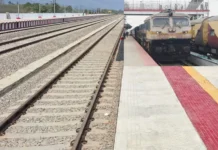[ Pisi Zauing ]
It is a known fact that the business of drug trafficking has blossomed in all the northeastern states and the respective state governments of the region are battling hard to curb the menace.
It is also a fact that Arunachal Pradesh has in recent years witnessed a steep rise in cases of drug trafficking and abuse. The state police and various community-based organisations and student unions across the state have been persistently initiating steps to curb the blooming business. The steps include seizure of large quantities of psychotropic substances from different districts, arrest of several traffickers and users, and creation of many de-addiction and rehabilitation centres across the state where drug addicts are provided with treatment, medicines and counselling.
Most youngsters are attracted to the practice of intravenous drug abuse. Such injected addiction has led to the spread of human immunodeficiency viruses (HIV). Sharing syringe remains a major route of transmission of HIV and Hepatitis C (HCV) infections.
The youngsters of Changlang and Namsai districts of eastern Arunachal are
the worst affected victims of heroin and Mandrax. Under the influence of these substances, many youths, including students, have lost their precious lives in road accidents and suicides.
Looking at the rise in drugs-related cases, the All Tai Khamti Singpho Student’s Union (ATKSSU], in collaboration with the All Namsai District Students’ Union [ANDSU], converted the boys’ hostel of the government higher secondary school in Namsai into a drug de- addiction-cum-rehabilitation centre from 4 January, and since then free treatment is being provided to drug addicts through medicines and counselling.
So far, 84 drug addicts have availed the facility provided by the student unions. Presently, 48 addicts are undergoing treatment. Since the 2024-’25 academic session has commenced, the boys’ hostel will be returned to the boarders soon.
“Immediately after all the 48 addicts recover, they will be discharged and the hostel will be handed over to the school management,” ATKSSU president Branglin Injo informed, and thanked the drug addicts and their parents for their cooperation and for exhibiting their will and commitment to lead meaningful lives.
“They have set an example for our society,” Injo added.
Despite financial constraints, the ATKSSU and the ANDSU have managed to provide free treatment, and thereby a new lease of life to 84 drug addicts. The unions didn’t receive any fund from the state government or from any establishment.
However, Deputy Chief Minister Chowna Mein visited the centre as a mark of encouragement. “If we get funding from the government or any other sources, we would organise similar free camps in the future,” the ATKSSU president said, and appealed to the youths, especially school students, to stay away from the web of drugs.
“I appeal to the recovered individuals to extend cooperation by joining hands in fighting the menace which has undoubtedly eaten into the vitals of societies,” Injo said.



